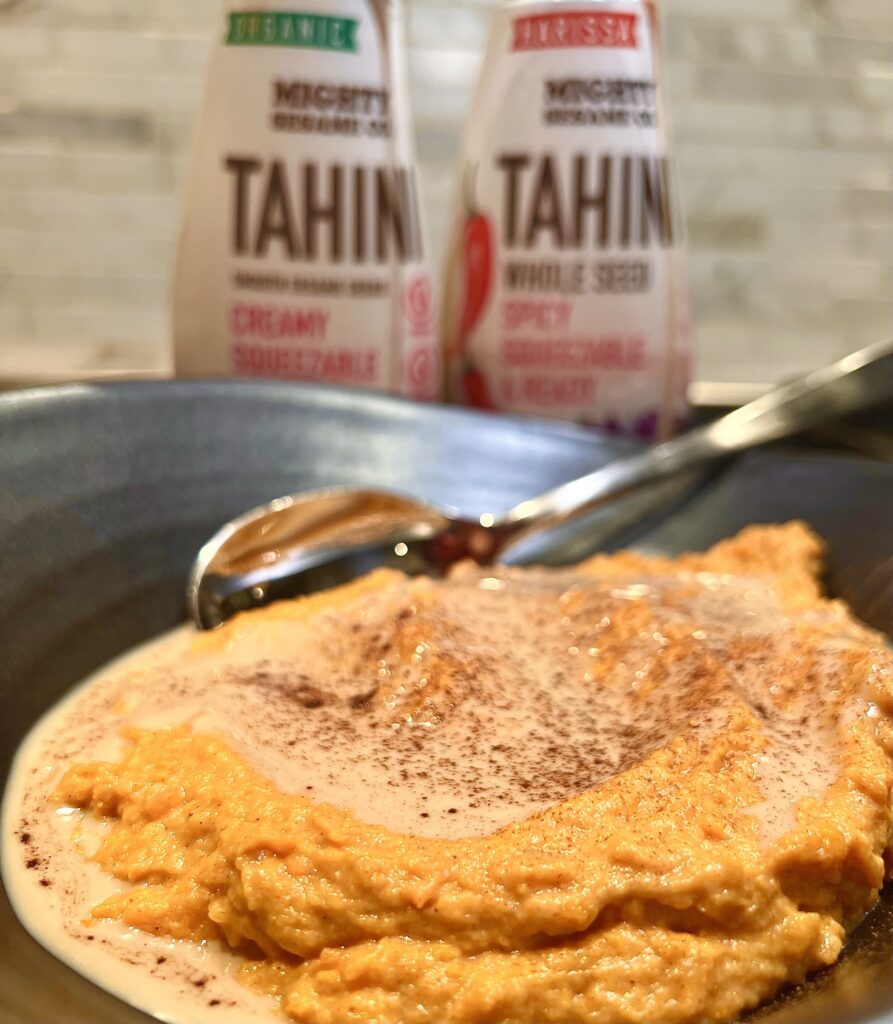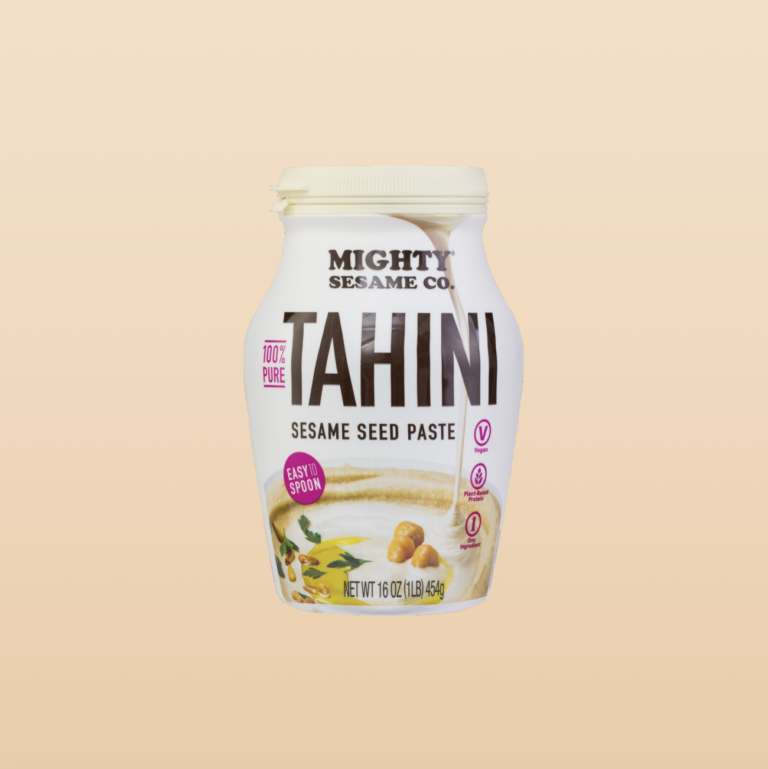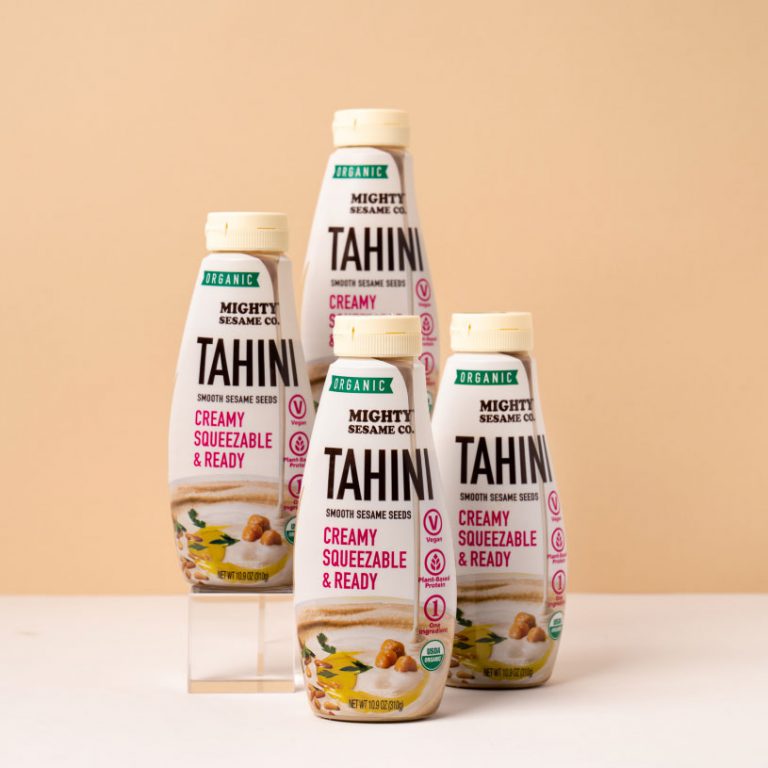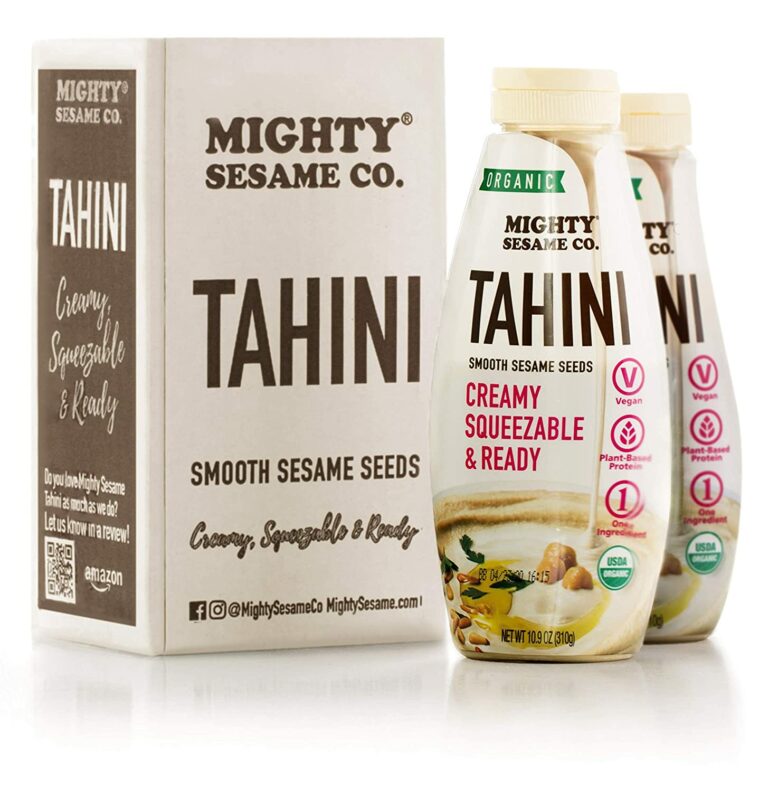
Does Tahini Need to be Organic? Expert Answers!
Hey there, tahini fans! Have you ever asked the question, “Does tahini need to be organic?” You’re not alone. Let’s explore what makes tahini unique and whether going organic is worth it. We’ll look at how it’s made, its health benefits, and how it affects the environment to help you choose the best tahini for you.
What Is Tahini & How Is It Made?

Tahini is a creamy paste made from ground sesame seeds. It’s a staple in Middle Eastern and Mediterranean cuisines, and it’s becoming more popular worldwide. Let’s look at how this yummy paste is made:
- Sesame seeds are harvested and cleaned
- The seeds are roasted to bring out their nutty flavor
- These toasted seeds are then ground into a smooth paste
- Sometimes, a little oil is added to make it extra creamy
That’s it! No fancy chemicals or weird additives. Just pure sesame goodness. Whether organic or not, tahini is all about keeping the natural qualities of the sesame seeds.
Organic vs. Non-Organic Tahini: What's the Difference?
Does tahini need to be organic or not? The main difference between organic and non-organic tahini is how the sesame seeds are grown and processed. Understanding these differences can help you decide which type of tahini is best for you.

Organic Tahini
Organic tahini is made from sesame seeds grown without synthetic pesticides or fertilizers. It follows strict organic farming practices for soil health and biodiversity.
It might taste a bit different because of natural farming methods. It’s often more expensive because it costs more and yields fewer crops. Certified organic products must meet specific standards set by regulatory bodies.
Non-Organic Tahini
Non-organic tahini is made from conventionally grown sesame seeds. It may use synthetic pesticides and fertilizers in farming to grow more crops. It’s often less expensive because it produces more crops and costs less.
The taste might be more consistent across batches due to standard growing practices. It must still follow food safety rules, but doesn’t need to meet organic certification standards.
Does Tahini Need to be Organic to Become Healthier?
Now, let’s talk about whether organic tahini is healthier.
- Both organic and non-organic tahini are full of healthy fats, protein, and minerals
- Organic tahini might have less pesticide residue
- Some people think organic tahini tastes better, but this can vary
- Organic sesame seeds might have slightly more antioxidants, but the difference is usually small
- The environmental benefits of organic farming might contribute to overall public health in the long run
While organic food products might have slightly less pesticide residue, the nutritional differences are usually small. Both types can be part of a healthy diet. The choice often depends on what’s important to you when it comes to food production and the environment.
So, Should Tahini be Organic?

Choosing organic tahini depends on a few things:
- Your budget – Organic variants often cost more
- Environmental concerns – Organic farming is generally better for the environment
- Personal health preferences – If you’re worried about pesticides, organic might make you feel better
- Availability – It might not be easy to find everywhere
- Taste preferences – Some people may like to dislike the organic taste
- How often you eat tahini – If you eat it a lot, the choice might matter more
Remember, tahini that’s organic isn’t necessarily better for everyone. It’s about what works for you and your life. The most important thing is choosing a good quality tahini, whether it’s organic or not, and using it as part of a balanced diet.
In Conclusion
Does tahini need to be organic? It depends on what you prefer, your health goals, and your lifestyle. Both organic and non-organic tahini can be part of a healthy diet and offer similar benefits. The most important thing is choosing a high-quality product, whether it’s organic or not.
At Mighty Sesame Co., we offer great tahini options for all preferences. Whether you choose our classic or organic varieties, you get a nutritious, versatile ingredient that can improve your cooking and contribute to a balanced diet.
Remember, the best tahini is the one you enjoy and use regularly in your cooking. So go ahead, try our different types, and find the perfect tahini for you. Whether you’re making hummus, dressing a salad, or trying new recipes, good tahini can make a big difference in your cooking.
Want to try some tasty tahini? Check out our ready-to-use tahini products and start making amazing dishes today! Whether you’ve used tahini a lot or you’re new to it, we have options for everyone. Try the creamy, nutty goodness of tahini and discover how it can make your meals and snacks even better.